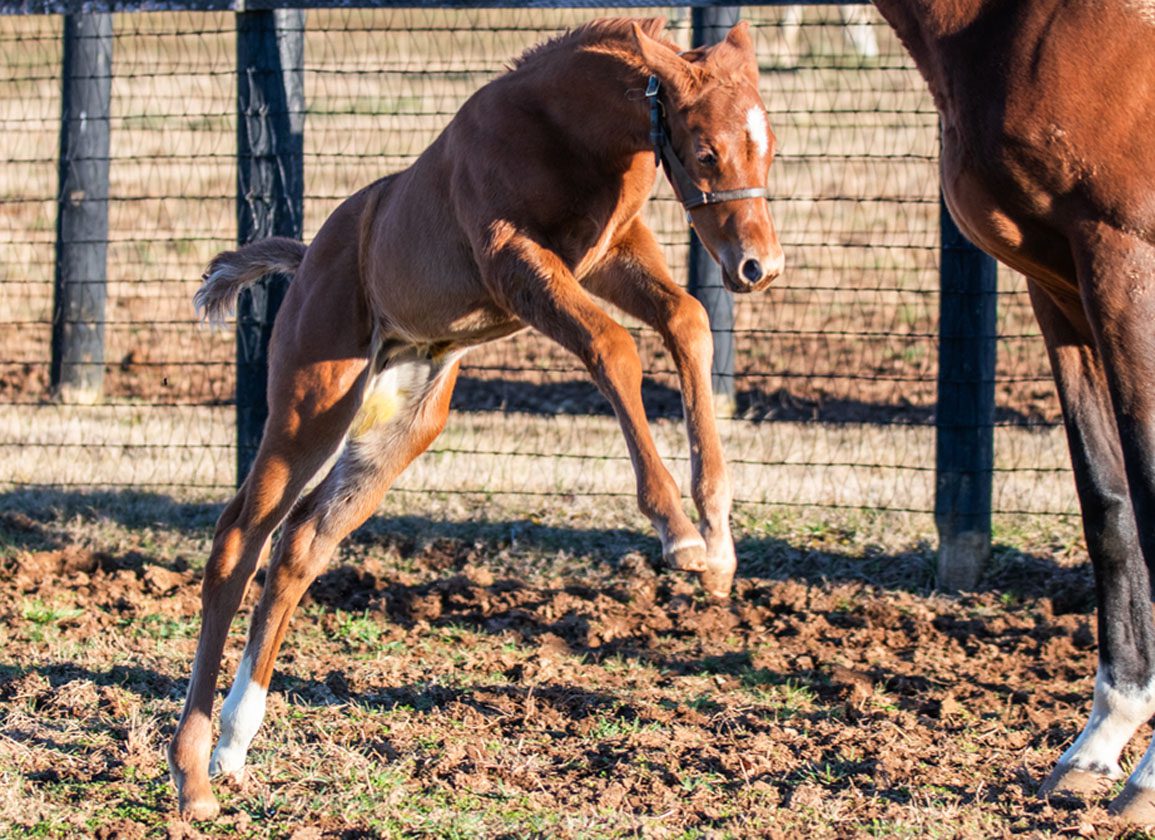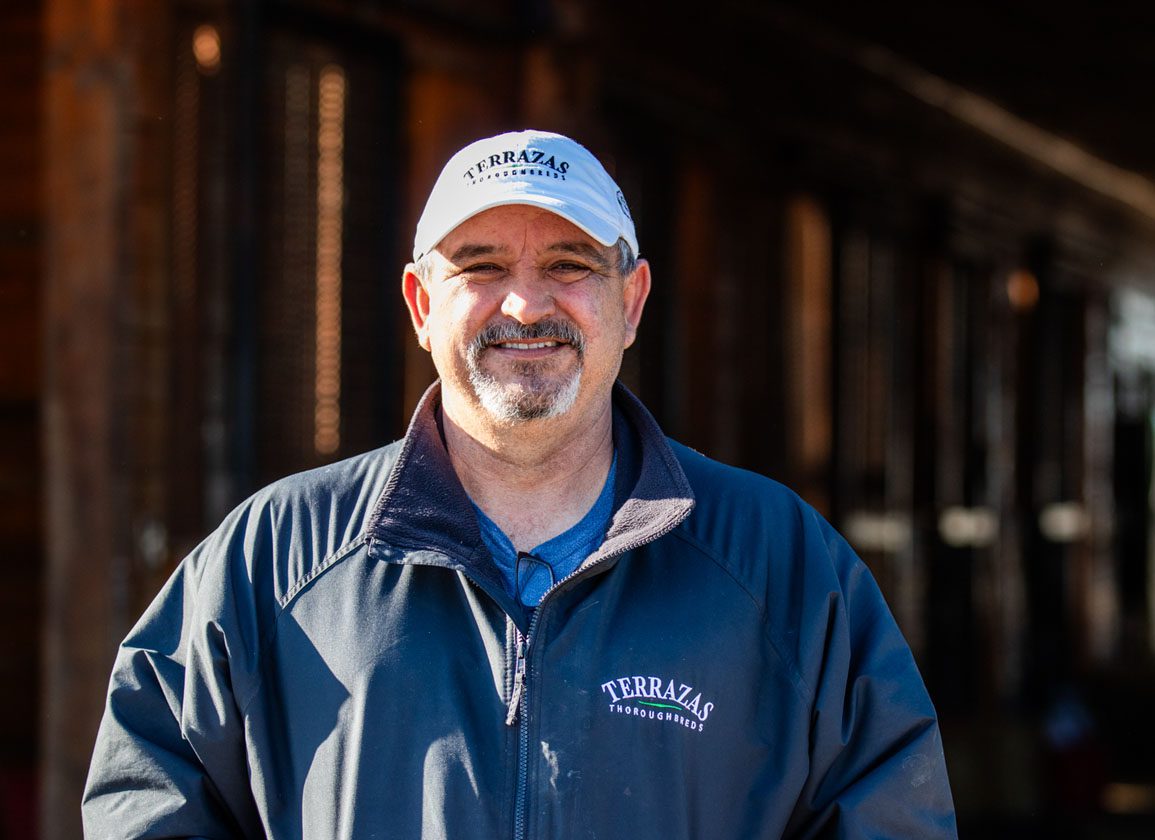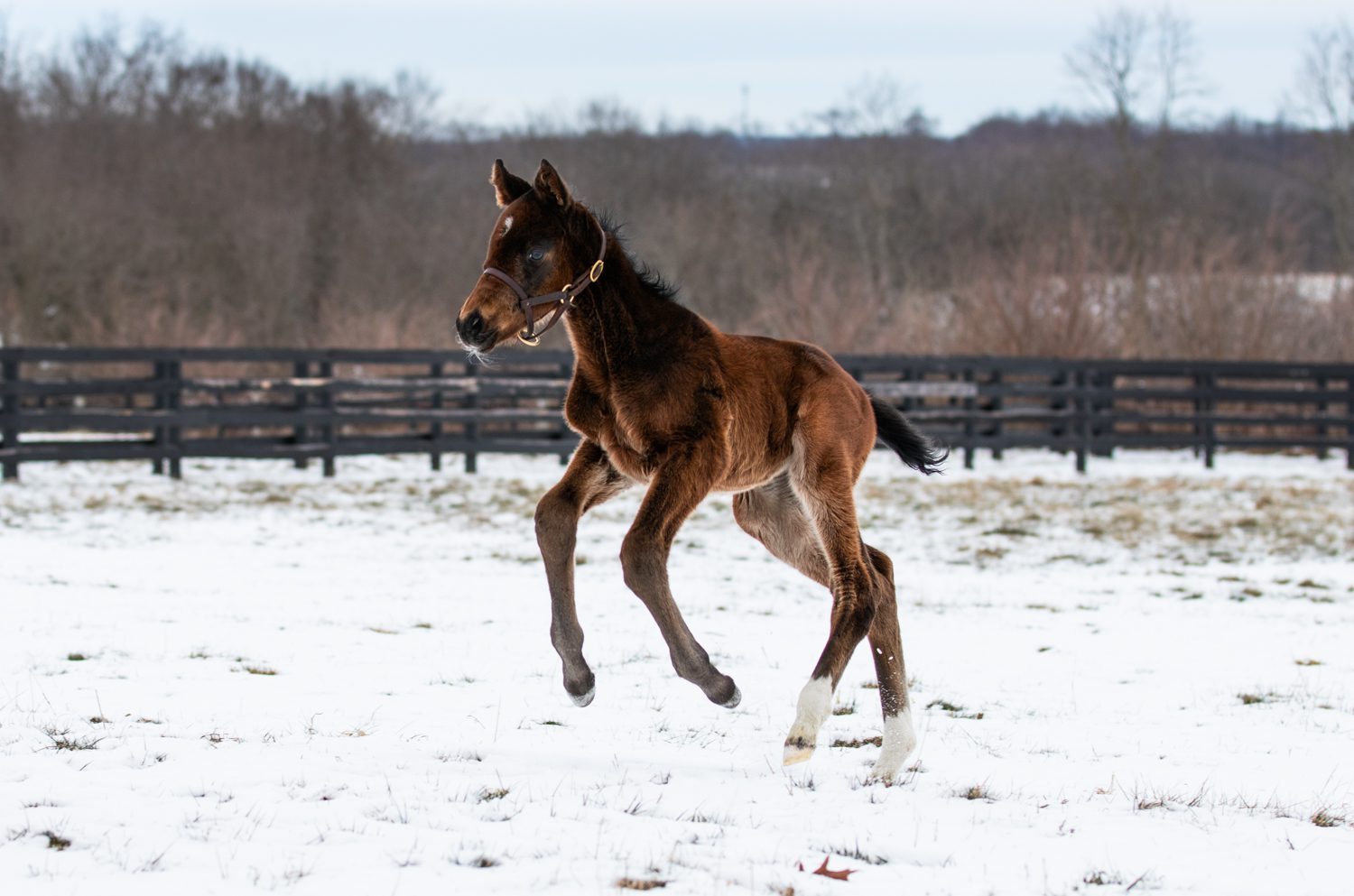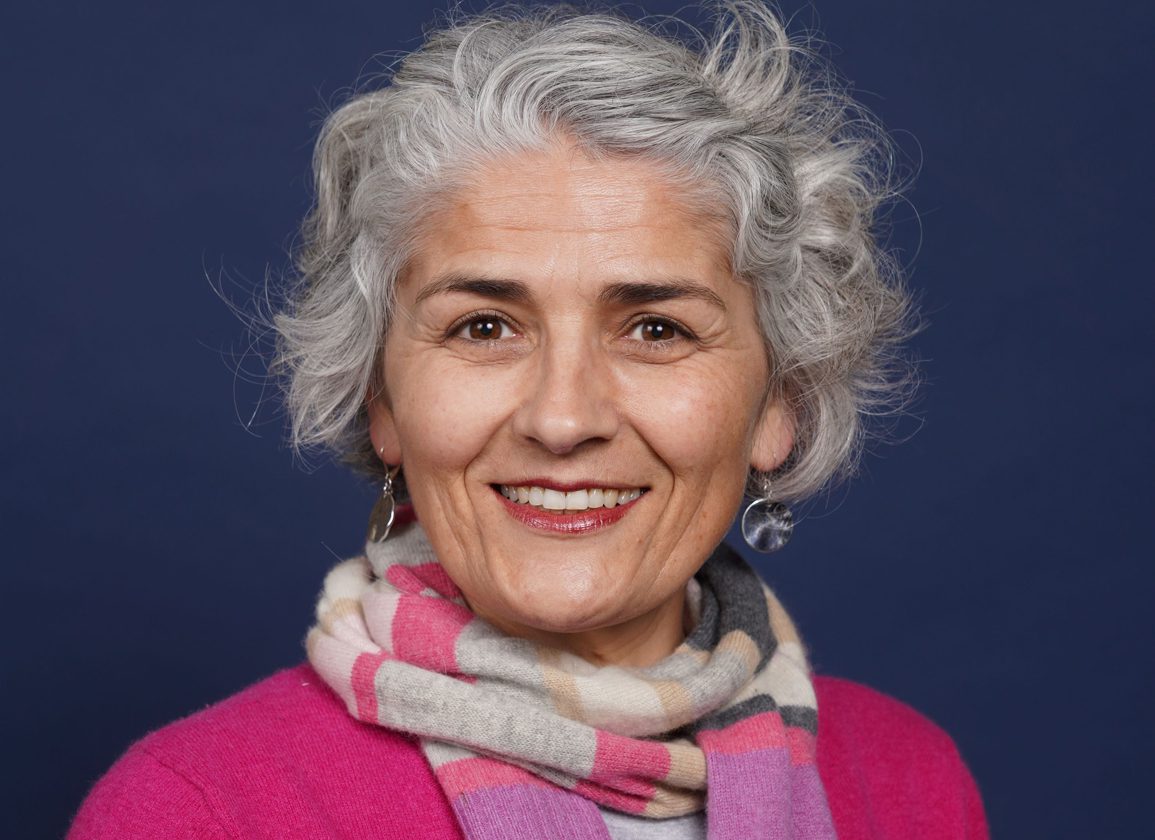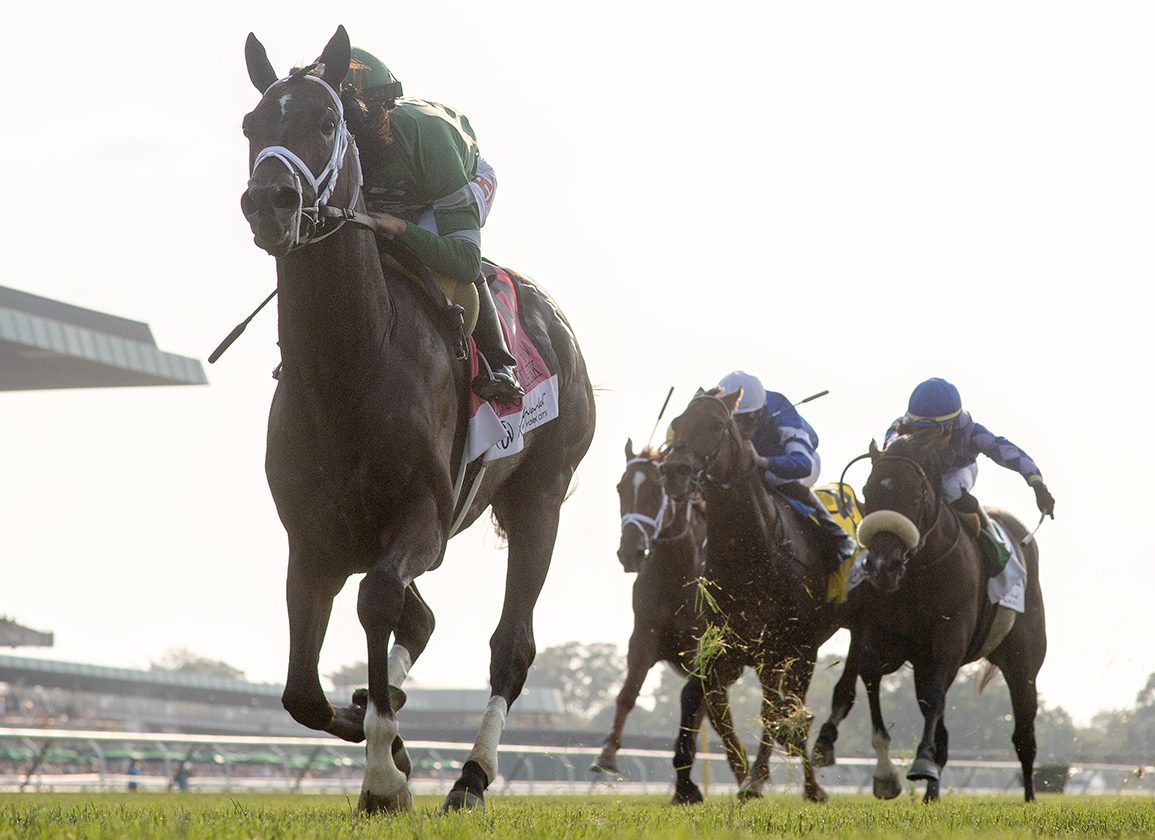Five-time Grade I winner and 2021 Eclipse Champion Older Dirt Female Letruska (Super Saver) produced her first foal, a filly by Curlin, on Feb. 4 at Terrazas Thoroughbreds in Lexington, KY.
Farm owner Eduardo Terrazas reported that the foaling was normal and that as the leggy filly has flourished in her first few weeks of life, she seems to have adopted her sire's physical and her dam's personality.
“Her mama is a very secure type of mare, very sure of herself, and the baby definitely shows that,” he said. “Ever since day one, she'll come straight to you. She's very independent and curious. She's a little bit of a handful. I think my night crew spends a little too much time with her, but my daughter is the night watchman and she likes to play with all her kids, so it makes sense.”
It's fair to say that everyone at Terrazas Thoroughbreds gives just a little bit of extra attention to the talented Letruska and now her young daughter.
While Terrazas did not foal Letruska, she was raised on their farm and spent well over a year growing up there before she was sent to race in Mexico, where she would be named champion 3-year-old filly. The St. George Stable homebred made the move to America with trainer Fausto Gutierrez in 2019 and soon rose to the top of the game in the U.S. Some of her more memorable wins came in a battle against champion Monomoy Girl (Tapizar) in the 2021 GI Apple Blossom H. and her near six-length victory in the 2021 GII Fleur de Lis S. The winner of 19 races from 28 lifetime starts, Letruska retired in 2022 with over $3.05 million in earnings.
Terrazas Thoroughbreds is also home to several of Letruska's family members, including her dam Magic Appeal (Successful Appeal), who was purchased by St. George Stable for $100,000 in 2015 with Letruska in utero. This year Magic Appeal has an Into Mischief yearling filly and is in foal to Gun Runner. Letruka's half-sister Mixteca (Tapizar) also resides at Terrazas and she recently produced a Charlatan filly.
“We have always been attached to Letruska's siblings, but we get attached to everything,” Terrazas admitted. “With all of her brothers and sisters that we have had, we know them like family. Having Letruska here is great, just to be able to say that you had something to do with a horse of that quality.”
Terrazas said they are in conversation with St. George Stable as they close in on their choice for which stallion Letruska will visit in 2024.
St. George Stable is owned by Mexican billionaire businessman Germán Larrea. His racing and breeding operation has a massive presence in Mexico and up until recently, he would race only a handful of his best horses in the U.S. Terrazas said those numbers have grown substantially over the past few years now that St. George Stable's trainer Fausto Gutierrez has planted a base in the U.S.
“In the past Mr. Larrea would probably breed around 10 or 12 mares here and most of them would be used to race in Mexico,” Terrazas explained. “Nowadays we are producing roughly 20 to 22 foals for them each year and the vast majority of them are staying here to race.”
St. George Stable has been active at the Kentucky breeding stock sales in recent years. At last year's Keeneland November Sale they bought nearly a dozen mares, including the $300,000 purchase of Ambassador Kelly (Pioneerof the Nile), a daughter of GISW Rachel's Valentina (Bernardini). At the 2022 Keeneland January Sale they went to $390,000 for Siempre Mia (Scat Daddy), the dam of MGSW Consumer Spending (More Than Ready).
The operation will also send mares who were successful in Mexico north to breed in Kentucky. Jala Jala (Mex) (Point Determined) and Malinche (Fast Anna) were both champions in Mexico before they joined St. George Stable's broodmare band at Terrazas Thoroughbreds.
Terrazas said it is a privilege to work with a client like St. George Stable that breeds exclusively to race.
“There are not a lot of people like that anymore,” he noted. “Everybody is so gung-ho on the market. This allows us to cater to him from a different perspective. Over the past few years, he has accumulated a really strong group of quality mares. We spend normally in the $250,000 to $300,000 range. That makes me really think high for the future. He's the type of owner that we need in the industry.”
Terrazas decided to launch his own boarding operation because of the changes in the commercial breeding industry. He served as stallion manager for Overbrook Farm and Taylor Made Farm for almost 30 years before opening Terrazas Thoroughbreds in 2005.
“Frank Taylor is the one who talked me into going on my own,” Terrazas said. “At the time I decided that I needed a bit of a break. As a stallion manager there is a lot of pressure. I started noticing that the books for the stallions kept getting bigger and bigger. All of that pressure comes to you. When you're a stallion manager, you have to find a happy medium between the horse and the business side of it. We started stressing more about [the book sizes] and I said, 'Well, maybe I don't want to do this for the rest of my life. It's not fun anymore.' That's when I decided to try it on my own. I never had any big plans and I still don't. We all know this is a finicky business. We're fine today. Tomorrow, who knows?”
But Terrazas Thoroughbreds had found plenty of successes over the years. Along with St. George Stable, their client list has included White Fox Farm and Corser Thoroughbreds, who recently bred 2023 GI Pacific Classic S. winner Arabian Knight (Uncle Mo).
Terrazas credits their operation's success to keeping things simple and hands on. He and his daughter, Jenny, take their time with each and every horse.
“My daughter and I do all the dirty work,” he said. “We foal every single horse. When we are raising horses, we just try to stay out of their way. Our horses come in each morning, eat, and an hour later they go back outside.”
Terrazas Thoroughbreds will consign horses, but only those that they foaled and raised themselves. Terrazas said he wants buyers to have the confidence factor of speaking to a consignor that has known the horse for his entire life.
“I've never run an ad; it's all by word of mouth,” he shared. “I turn down mares every year because I'd rather say no than do a bad job.”
Terrazas said that being able to share his passion for the business with his daughter is what gets him out of bed for those late night foalings and the early morning feedings.
“I've always joked to people that if it wasn't for my daughter, I probably would have quit a while ago and just gotten a real job,” he admitted. “I tried to steer her away from a young age, but it didn't work out. She loves it. She's a very hard worker. She's a lot like me. You can be out here with triple pneumonia or whatever and still show up. I'm very proud of her. To see these horses doing so well is just unbelievable and to see our clients do good is really what we're here for.”
The post Letruska the Star of Terrazas Thoroughbreds appeared first on TDN | Thoroughbred Daily News | Horse Racing News, Results and Video | Thoroughbred Breeding and Auctions.
